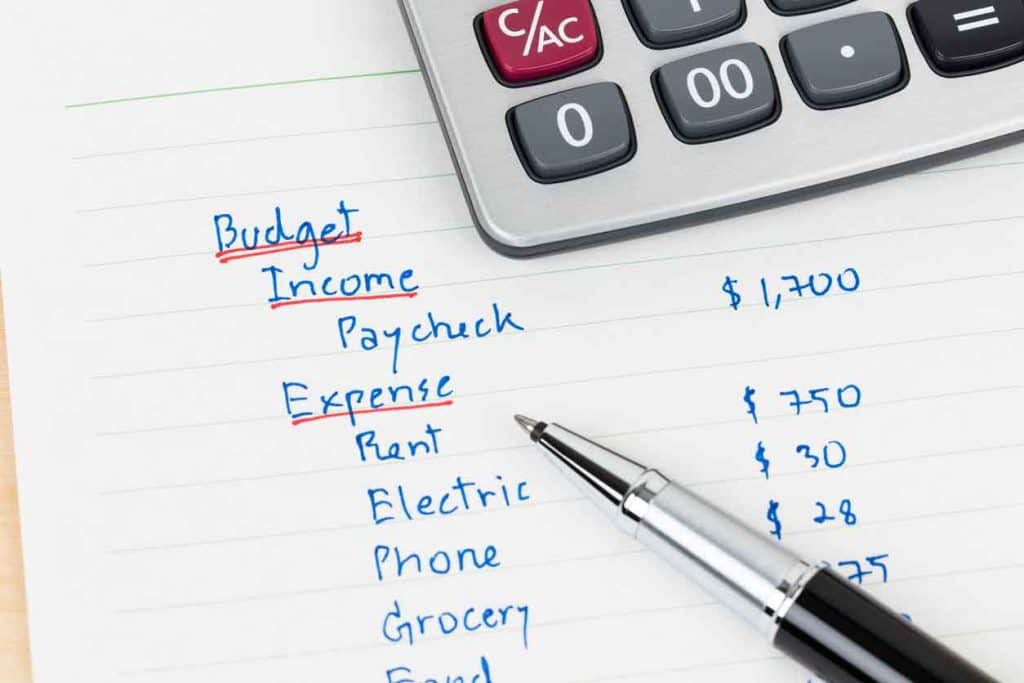Tips For Budget
Financial insecurity is a huge source of stress to Americans. In fact, many adults stick their heads in the sand when it comes to understanding their finances. Because they are scared of what they will discover about their debts and bills, they choose to continue spending mindlessly, hoping that everything will turn out well in the end. However, these types of actions breed discontentment and fear.
A simple budget along with a debt consolidation strategy may be all that is needed to turn this situation around and give individuals confidence in how they are spending their money. If you are ready to get a handle on your finances this year, use these smart budgeting tips to create a goal-oriented financial action plan.
Figure out Your Income
Before you can create an accurate budget, you need to know how much money you have to work with each month.
This may seem simple, but it is not as easy as looking at your monthly paycheck. You will also need to include any side jobs you have, interest income that makes its way into your bank account and regular earnings you receive for selling items. If your monthly income is highly irregular, you will want to create a budget based on your lowest-earning month.
Make Sure You Know Where Every Dollar Is Going

Once you know how much you are bringing in each month, you will also want to know where every dollar is going. By telling all of your money where to go, you will finally be back in control of your finances.
This type of budget is sometimes called a zero-dollar budget because your income and expenses will be equal. The first month or two that you do this may require some trial and error. You may be surprised at just how much you are spending in certain categories and may quickly see some expense categories that need to be trimmed.
Consider a Budgeting App
Tracking every expense can be difficult to get used to, but a budgeting app can ease your burden and may be able to track some purchases automatically if you connect the app to your bank account.
A budgeting app will help you categorize spending, see where you are spending more than you should, keep track of savings and debt payoff goals and show you what percentage of your income you are using for each category. Plus, it will do all of the time-consuming addition and subtraction for you.
Rework Your Budget Every Month

Even if you work at a steady job and do not have any side jobs, your budget most likely changes monthly. This is because the amount you have to spend each month depends partially on one-time expenses.
There are probably many one-time purchases that you make each year. For example, you may have a life insurance policy that only requires one annual payment. Clearly, you only have to purchase Christmas gifts once per year. Other expenses that fit into this category include birthday gifts, summer vacations and Halloween decor. Some of these expenses can be quite high. Most American spend over $1,000 on average for Christmas alone. By thoughtfully budgeting for these and other expenses ahead of time, you can avoid going into debt over them.
Budget for What Is Important to You
Some things, such as food, housing, utilities and transportation, have to fit into your budget. However, this is not to say that wants are not just as important as needs when it comes to managing your money.
When you create a miscellaneous category for fun money or personal lifestyle choices, you can free yourself mentally and better enjoy yourself. This category lets you make in-the-moment decisions about what you want to do. You may want a manicure, or you may prefer to see a movie. Some experts recommend budgeting approximately 30 percent of your income to lifestyle choices, including personal care, entertainment, travel and gifts.
Make Debt Payoff a Priority
If you have any type of debt, such as credit card debt or student loans, you will probably want to make debt payoff more of a priority now so that you do not have to live under financial stress for years. Taking out a personal loan or choosing debt refinancing could help.
I certainly know how trying it can be to live with the burden of high debt. Today, American households that use credit cards have an average of over $8,000 in credit card debt. Of course, mortgages, car loans and student loans account for even more borrowed money. You may be able to pay off your debt faster with debt consolidation, a process that combines all of your debts into one new debt that typically comes with better terms and a lower interest rate.
Budget for the Unexpected
Because of all the debt carried by numerous households, it can be scary to consider financial crises. Even coming up with enough money to pay for a car repair could be impossible for many.
Approximately two-thirds of Americans would have trouble finding $1,000 to pay for an emergency expense, such as a health scare or an unexpected home repair. By budgeting even a small amount of money into an emergency fund every month, you can keep the rest of your budget working well even if an unexpected expense hits you. If you are unable to afford unexpected expenses, you may want to consider a short-term personal loan instead.
Emphasize Savings for Long-Term Goals

A final category you should consider as you create your budget is savings. Savings accounts give you future security for currently unknown needs as well as retirement.
Consider putting 20 percent of your income into some sort of savings whether that is a company 401(k) plan, personal IRAs or a personal savings account. Start with a realistic savings goals for the year and for the next decade, and come up with monthly ways to meet that goal. Keep in mind that you may not be able to earmark a full 20 percent for savings until you have completed the debt consolidation and payoff process.
Do You Have the Ideal Budget?
-Does your income equal your expenses?
-Are all of your regular monthly expenses listed?
-Have you included money for unexpected expenses?
-Have you included money for debt repayment?
-Have you included money for savings or retirement plans?
-Do you reevaluate your budget every month?
-Is your budget realistic?
-Are you able to stick to your budget each month?
If you have answered yes to each of these questions, you most likely have a smart budget that will help you meet your long-term spending and saving goals. However, if you answered no to one or more of these questions, you may need to invest more time into creating a realistic budget that matches your lifestyle.
A budget should be a personalized tool that reflects your needs, goals and values. Your budget may not match someone else’s, but it should work for you over the long-term. I know that by following these eight budgeting tips, you can get a handle on your personal finances, stop living in fear of your credit card bills and build up a financial buffer to protect you from unexpected expenses. When you live within your means and tell your money where to go, you can grow in confidence, self-esteem and joy. Do you have any additional smart budgeting solutions that have worked well for you?



